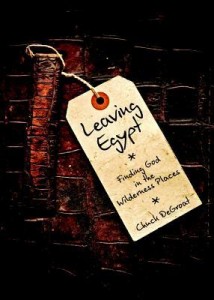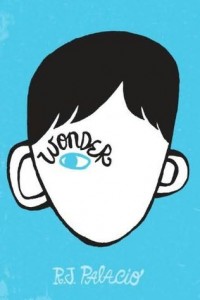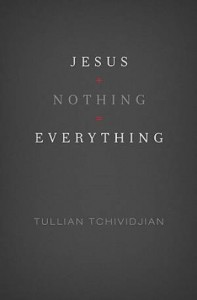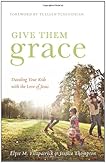 Give Them Grace by Elyse Fitzpatrick
Give Them Grace by Elyse Fitzpatrick
My rating: 3 of 5 stars
Give Them Grace asks readers a very important question: how does believing the gospel change the way that you parent? Fitzpatrick asserts that if the way that we parent is the same as a devout Muslim or Jew, there must be something wrong. I think this is a paradigm shift that is very important for Christian parents, and one that I have been excited to see more and more of in books written in the last five to ten years.
The overall message of the book will be a balm to many readers. Resting in grace, parenting with humility, dependence on God, these are all messages that parents need to be reminded of. There are no guarantees and no quick fixes. Parenting is hard. I think many parents will find this an encouragement on many levels.
Because I have seen her books recommended in presbyterian circles so often, I was genuinely surprised by how un-covenantal this book was. (Fitzpatrick has a Sovereign Grace / Reformed Baptist background.) In the first several chapters alone, it talks many times about not presuming your children are regenerate, that they might pray a prayer just to please you and if they aren’t saved, they don’t have the Holy Spirit and therefore can’t obey God’s law from the heart. In examples of how to speak to a child, parents say things like “someday you’ll know how wonderful God is and how much he loves you.” Worse yet, speaking to an older child, “Because you don’t believe in Jesus’s love for you, your whole life will be spent trying to win and never being satisfied. And then you’ll have to stand before God, and all you’ll have is your record of failure. Striking out isn’t the worst thing that will ever happen to you. Living your life to win something other than Jesus is.” In example “scripts” there are different things to say to unbelieving versus believing children.
This is hard for me to read, even though I know that my children might turn away from God and need to be spoken to as an unbeliever, I think that it can be very confusing to children to speak to them as if they do not have faith. Let’s not encourage doubt or for them to question whether they “really” believe, let’s teach them to rest in God, as he is the author of their faith, anyway.
Though Fitzpatrick explains a fully orbed portrait of discipline that looks like discipleship, she uses the word “discipline” as a synonym for “spanking” which irks me. Parents say “I must discipline you” which is true generally, but what they mean is “I am choosing to spank you for this infraction.” It’s a pet peeve. Reading her model for talking to a child who defied his parent by not stopping playing when told it was time for dinner, shocked me. “If you believe that he has loved you and received punishment for you, then this kind of punishment will help remind you to live wisely, and the pain of it will soon be gone. But if you don’t believe in his great goodness, then the punishment you receive today will be just the beginning of a lifetime of pain. Today, you can ask for forgiveness, and I will forgive you, and if you ask him, so will the Lord. But if you wait, if you harden your heart and refuse to change, then a day will come when it will be too late to ask for forgiveness.” This sort of talk feels manipulative to me.
However, I appreciate the stand the authors have taken against forcing children to show repentance after being spanked. Many evangelical authors espouse this idea, and I know many adults who remember faking repentance and lying to avoid further punishment.
Many readers will appreciate the attempt at coupling of theology and a philosophy of parenting with more practical advice. I feel like I talk to my kids fairly theologically but the models were a stretch, and I couldn’t imagine talking to my children like that. However, it did incite me to think about how I would phrase a similar discussion, and that sort of premeditation is always helpful in parenting.
This is a good addition to the already crowded Christian Parenting shelves at bookstores, but I am still waiting for a book that I feel more comfortable recommending.
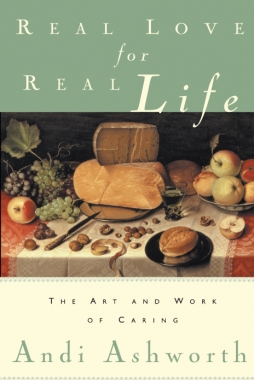 My favorite book on Christian hospitality is Andi Ashworth’s Real Love for Real Life. I reviewed it back in 2006. In early 2008, Andi Ashworth lead our church women’s retreat, teaching from this material. Both reading it and hearing it were good for the soul.
My favorite book on Christian hospitality is Andi Ashworth’s Real Love for Real Life. I reviewed it back in 2006. In early 2008, Andi Ashworth lead our church women’s retreat, teaching from this material. Both reading it and hearing it were good for the soul.
